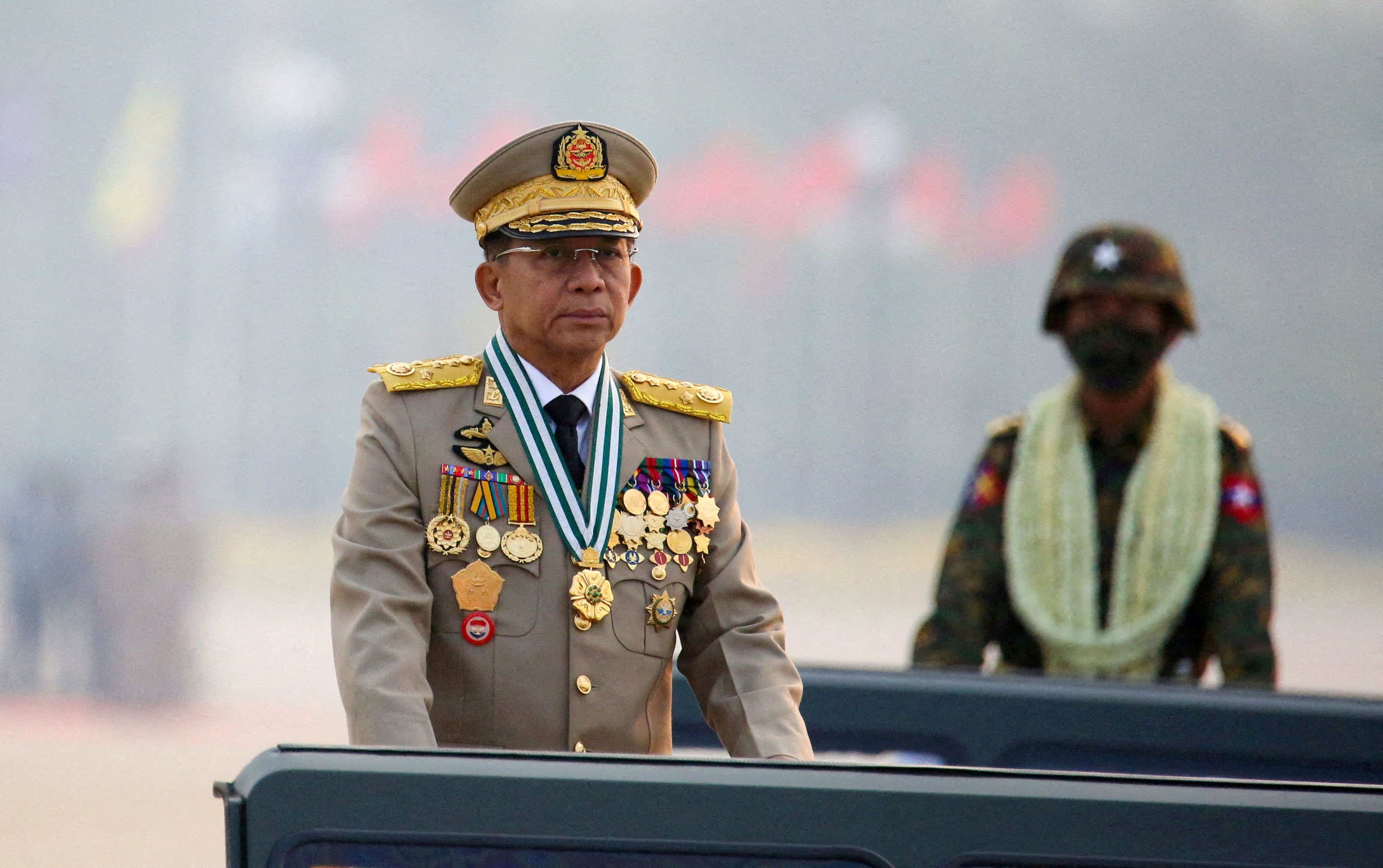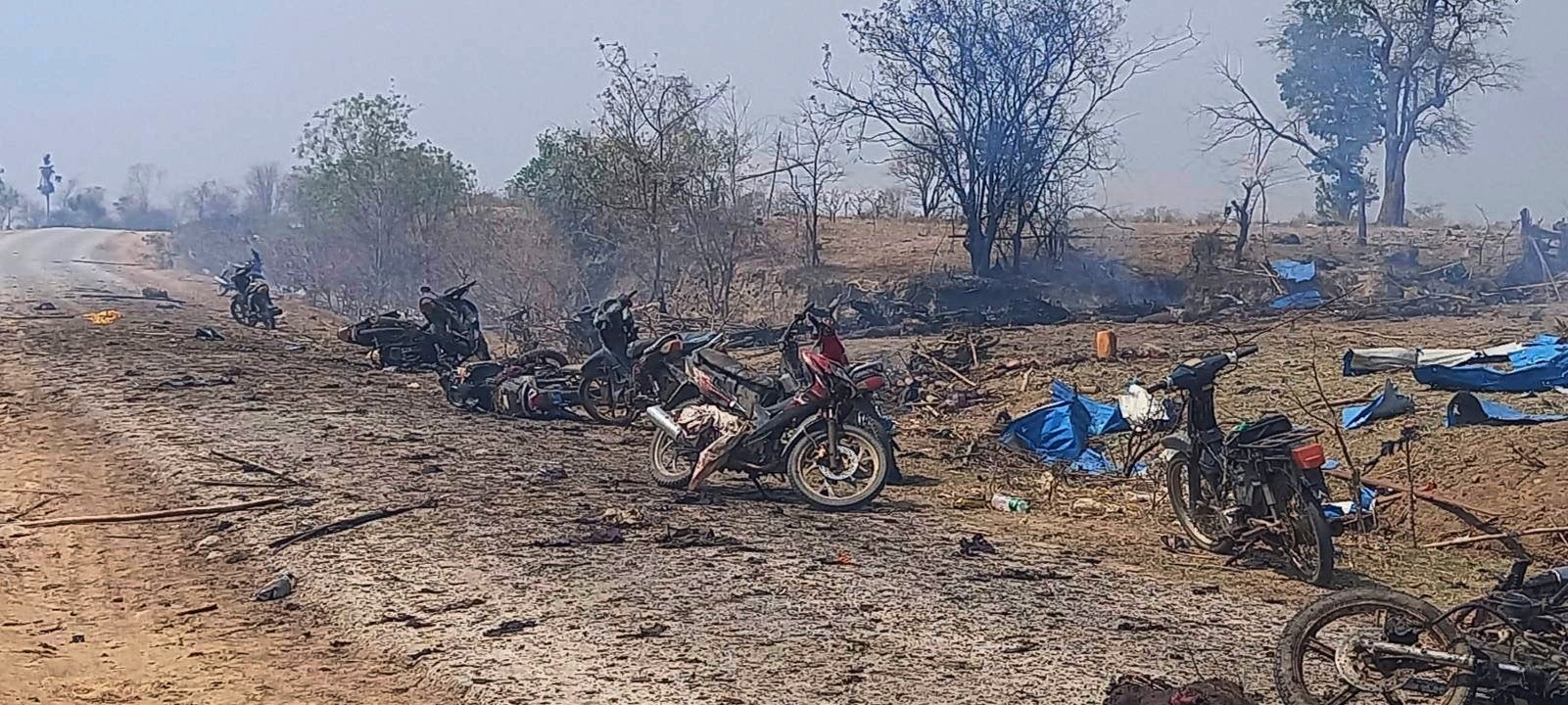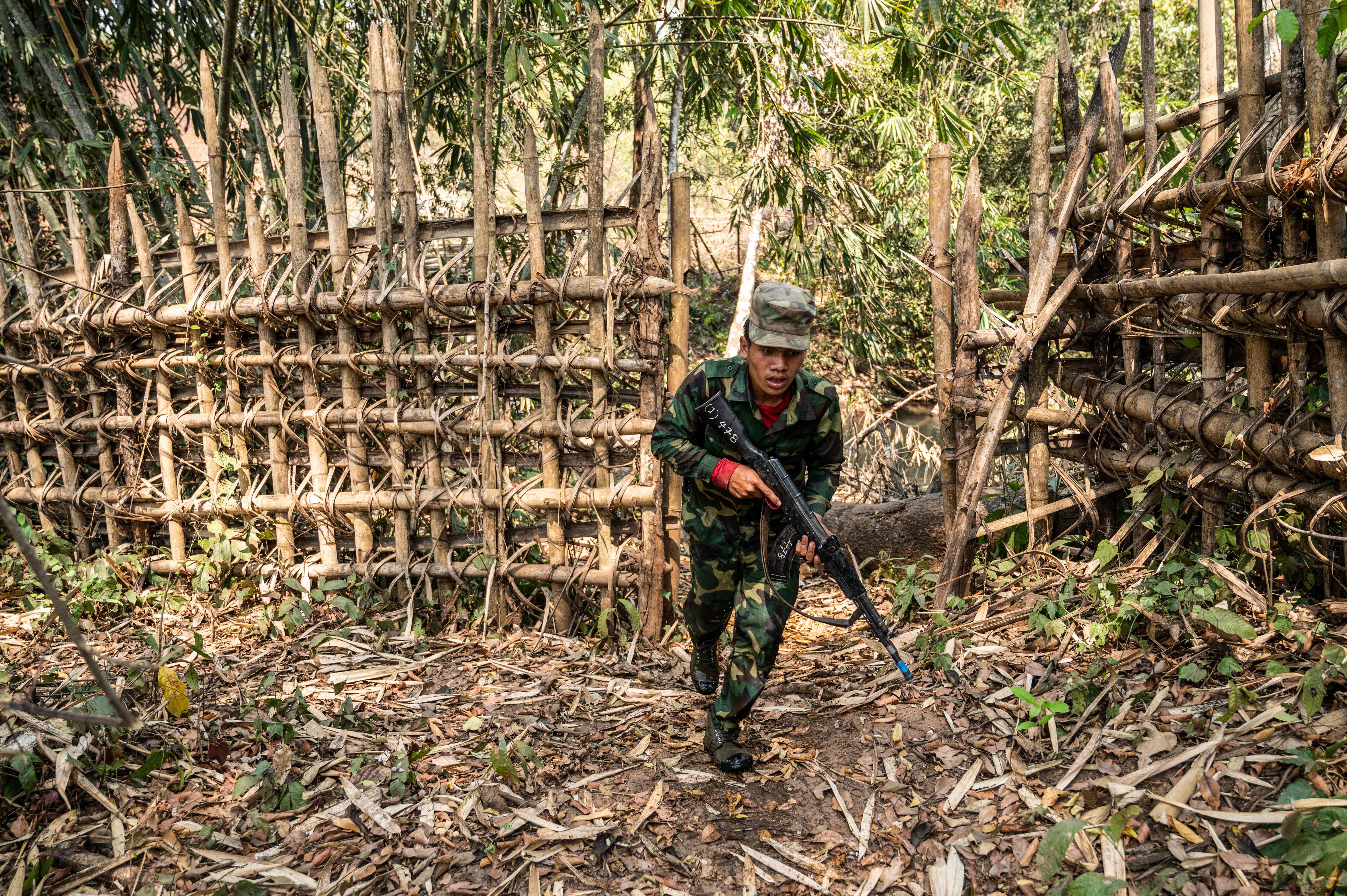Myanmar’s military imported $1bn in arms since coup, UN expert says
Report finds Russia and China sent most amount of weapons and materials in two years

Your support helps us to tell the story
From reproductive rights to climate change to Big Tech, The Independent is on the ground when the story is developing. Whether it's investigating the financials of Elon Musk's pro-Trump PAC or producing our latest documentary, 'The A Word', which shines a light on the American women fighting for reproductive rights, we know how important it is to parse out the facts from the messaging.
At such a critical moment in US history, we need reporters on the ground. Your donation allows us to keep sending journalists to speak to both sides of the story.
The Independent is trusted by Americans across the entire political spectrum. And unlike many other quality news outlets, we choose not to lock Americans out of our reporting and analysis with paywalls. We believe quality journalism should be available to everyone, paid for by those who can afford it.
Your support makes all the difference.The Myanmar military imported at least $1bn worth of weapons, mostly from Russia and China, since its February 2021 coup that unseated a democratically elected government, the United Nations (UN) said in a new report.
The South Asian country has been gripped by a bloody civil war since the junta led by General Min Aung Hlaing wrested power by overthrowing the elected government of Aung San Suu Kyi and arresting democratic leaders.
According to the report, $406m in weapons and materials that went to the Myanmar military were from Russia, while $267m were from China, $254m from Singapore, $51m from India and $28m from Thailand.
The military has been increasingly using airstrikes and heavy weapons to counter a widespread armed struggle against its rule.
The weapons have been flowing to the junta despite overwhelming evidence of its responsibility for the atrocities, including war crimes and crimes against humanity, said Tom Andrews, the UN independent investigator on human rights in Myanmar.
Russian-made Mi-35 helicopters, MiG-29 fighter jets, Yak-130 jets, and Chinese K-8 jets have been used to conduct airstrikes in civilian areas that targetted schools, medical facilities, and homes, the report said.
Mr Andrews noted that on 11 April, the junta used Yak-130 jets on a ceremony attended by some 300 opponents of army rule, which was quickly followed by an attack by Mi-35 helicopters on those who came to help.
At least 160 people, including several children, were killed in northwest Myanmar in one of the deadliest incidents of the civil war so far. The military said it targetted insurgents, adding that any civilians killed were probably supporters of opponents and "terrorists".
In addition, the machine guns and bombs used in the attacks included parts and materials from companies located in Singapore, China, and Thailand, Mr Andrews said.
The junta takeover plunged the country into an economic as well as security crisis, derailing decades of progressive reforms and inviting fresh international sanctions.

At least 3,500 civilians have been killed by the military and nearly 1.5 million people have been internally displaced in Myanmar, while over 70,000 have left the country in the two years since the coup, the UN estimates.
The report documents over 12,500 purchases that were shipped directly to the Myanmar military or known Myanmar arms dealers working for the junta since the coup till December 2022, Mr Andrews said at a news conference.
He said the volume and diversity of equipment the military received was "staggering", ranging from fighter jets and attack helicopters and drones to advanced missile systems, tank upgrades, sophisticated communications equipment, radar complexes and components for naval ships.
Since the coup, the report said, 28 Russian private and state-owned companies have transferred fighter jets and their spare parts, advanced missile systems, reconnaissance and attack drones, attack helicopters and other systems to the junta.
At least 41 private and state-owned companies registered in China and Hong Kong supplied the junta with an extensive array of arms, equipment and raw materials between October 2021 and December 2022.
It included advanced trainer jets, light attack aircraft, tank upgrades and repairs for Chinese fighter jets, which make up the Myanmar Air Force fleet, the report said.

They also supplied aluminum, copper, steel, rubber and lubricants for use in Myanmar's domestic weapons manufacturing, it said.
Mr Andrews, a former Democratic congressman from Maine, said that the “highly credible and detailed information” on major networks and companies involved in the arms trade was received from “confidential sources”.
He said that there has been no information indicating that the governments of Singapore or Thailand approved or transferred arms to the Myanmar military. Singapore has a policy prohibiting the transfer of arms to Myanmar, he added.
However, Mr Andrews said, companies in Singapore are of importance to the junta, having supplied spare parts, raw materials and manufacturing equipment, especially for Myanmar’s KaPaSa weapons factories.
Thai companies have done the same.
Twelve Thai companies were established after the coup, many by sanctioned arms networks already operating in Singapore, which suggests arms dealers may be looking at Thailand as an alternative route to avoid scrutiny, the report said.
According to the investigator, if the Singapore government stopped all arms shipments to the Myanmar military, it would “significantly” impact the junta’s ability to manufacture arms. Mr Andrews said China and Russia both criticised the report, saying it went beyond his human rights mandate, and accused him of “vilifying legitimate arms trade”.
India responded saying these involved contracts with the previous civilian government. The report found that 22 state-owned and private Indian firms shipped a coastal surveillance system, a remote-controlled weapons system, components from an ammunition and missile manufacturer, and 122 mm howitzer barrels.
General Hlaing earlier in January thanked Myanmar’s neighbouring countries, including India, for “positively cooperating with us”.
With inputs from agencies



Join our commenting forum
Join thought-provoking conversations, follow other Independent readers and see their replies
Comments